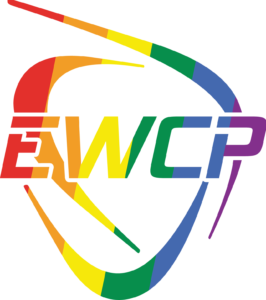2021 Scholarship Winner
EWCP is proud to recognize Maria Izzi, a member of FTC team 10357 “Volt-e-mort” in Herndon, VA, as the winner of the 2021 EWCP Scholarship for Social Change. Maria is a high school senior and plans to attend Duke University majoring in Computer Science.
Maria’s Winning Essay
When I learned that an Arab-American-owned store reported George Floyd, I was forced to confront an evaded reality: racism pervaded my Muslim community. I realized it had always existed, as I thought back to summers when my mom “scrubbed the darkness” off my face, to colorism in Indian beauty standards, to my own culpable silence while friends used the N-word, blasé.
This racism has roots in misinformation. My parents interacted with social media about Asian or white changemakers, but didn’t see many Black ones, rather only finding Black people in posts about criminals. I want to work to fight misinformation, using my technical and interpersonal skills, in part gained from FIRST programs.
I’m currently working on computational cancer research at Harvard’s Parmigiani Lab. I have also gained some data science experience working with the Coronavirus Visualization Team, a student group founded out of Harvard, to create data visualizations surrounding the pandemic. I hope to move to more interdisciplinary research, applying my Python, R, heuristics and data science skills alongside psychology, economics, and other principles.
I plan to investigate problems like media misinformation, specifically vulnerability, policy solutions, and COVID/emergency news. A large part of the reason that social media is able to intensify biases, from racism to political ideologies, is because it obstructs opposing viewpoints. By gently exposing users to these different perspectives, they can gain a more comprehensive view of all topics, reducing the current polarization of the world while still allowing the enjoyment of social media.
This product can look like either a policy change to current media platforms, a new platform with an altered algorithm, or an external browser extension/app. The scale of this plan is infinite; while I will start with a small group, such as people like my parents, the product can eventually grow to accommodate all audiences. I have already begun part of this process through creating informative COVID visualizations which provide accurate, in-context data to users. A large part of misinformation comes from non-contextual or misrepresented data at an individual level, so this is already a leap on the path to a solution.
I owe much of my inclination toward this change to FIRST, as it taught me how working small-scale, from the ground up can have magnified impacts, sometimes even more than larger events. Our FIRST Tech Challenge team held many events with a small audience, as well as some with larger ones, including workshops, multi-team collaborative meet n’ greets, and multi-session classes. We discovered that even inspiring one student to start a team, or exposing one person to a new CAD skill could make a huge change in the FIRST community, and thus, across the world.
By leveraging the power of trickle-up change through data science and social media, I hope to help people build independent opinions, ultimately creating a more informed, open-minded world.
